“This post contains affiliate links, and I will be compensated if you make a purchase after clicking on my links.”
As you gear up for low temperatures, sub-zero wind chills, and layers upon layers of ice and snow, it’s important for pet parents to be cautious in the winter weather care of their dogs.
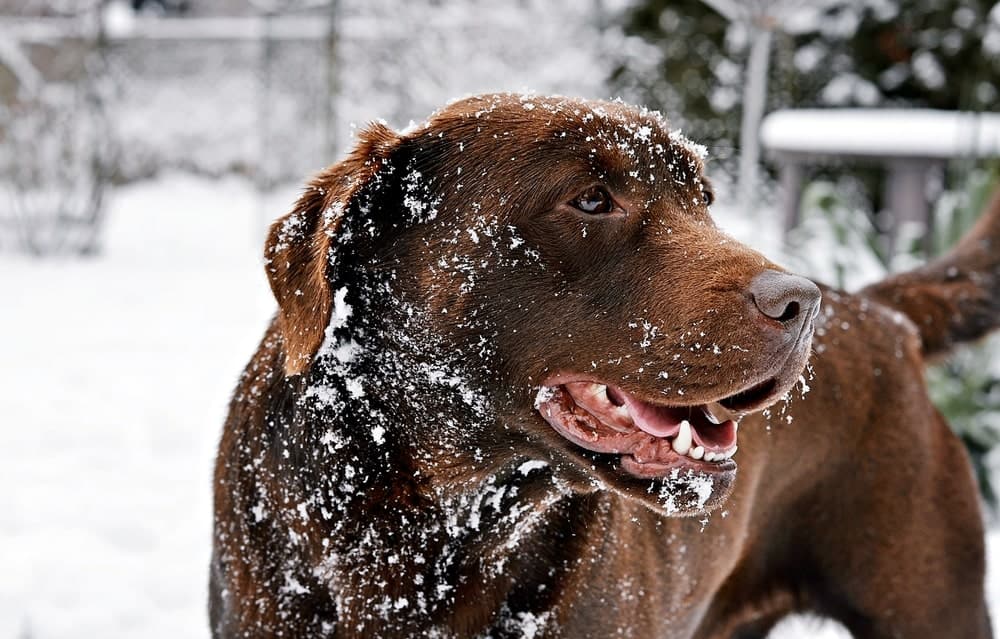
Aside from the obvious – keeping your dog inside where it’s warm – remember these tips for keeping your furriest family members healthy and happy through the frigid winter months:
Nutrition: Dogs that spend a good amount of time outdoors may need additional calories to maintain energy and body weight. Increasing food intake during the winter may be necessary for those snow-loving dogs!
Alternatively, those dogs that avoid the cold and spend more time lounging indoors may require fewer calories this time of year! Talk to your veterinarian about properly adjusting your dog’s diet for winter.
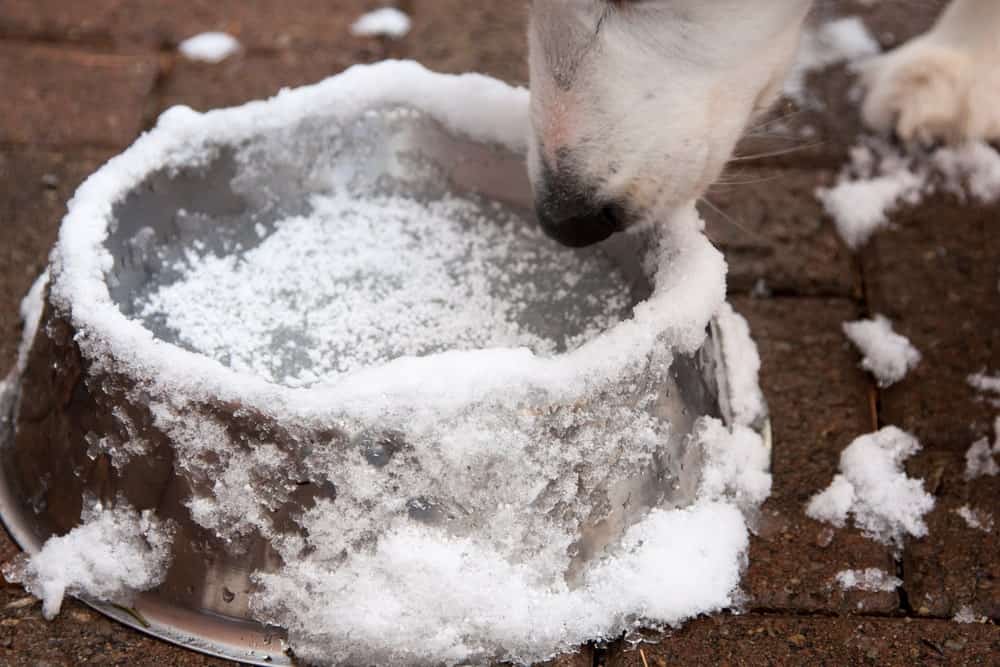
Hydration: As always, it’s important that your dog have access to clean, fresh water at all times, even outside. Using a plastic bowl (not metal!) keep a supply of fresh water outdoors for your dog. Prevent your pup from eating any ice or snow that may have been contaminated by antifreeze and/or salt.
A heated water bowl placed outdoors will keep water from freezing and ensure your dog always has access to fresh water.
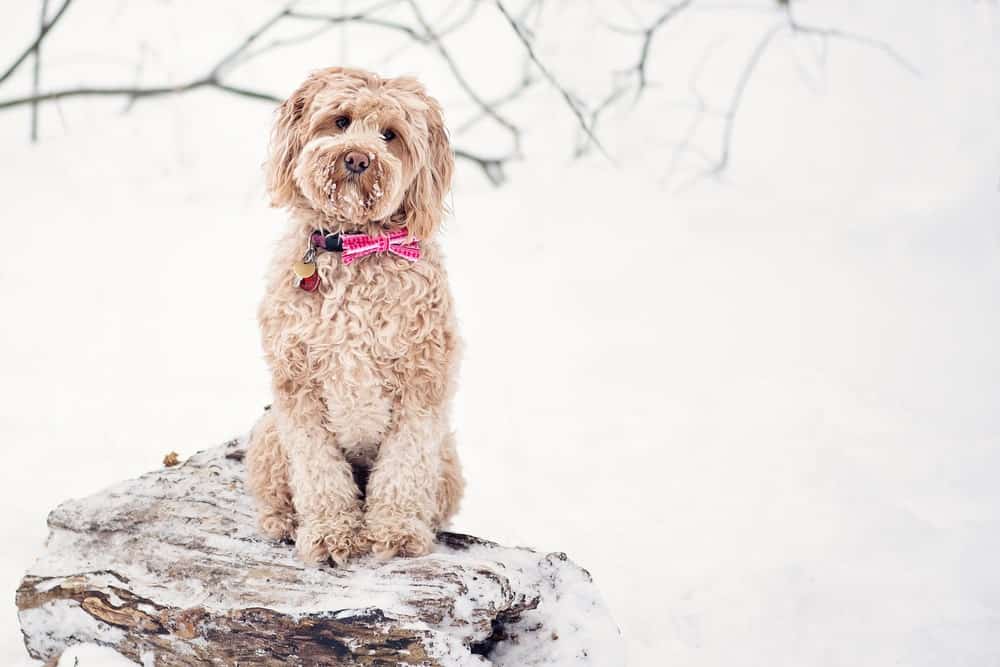
Identification: Make sure your dog is wearing a collar and ID tags whenever he’s outside, especially in the winter. Snow and ice on the ground can mask smells, making it difficult for him to find his way back home if lost.
Better yet, microchip your pets! In the event that their collars are lost or removed, a microchip will always make it possible for your dog to be identified if found.
Protection: Despite their fur coats, dogs CAN get frostbite, particularly on their paws. Ice, snow, even frozen driveways and sidewalks can lead to frostbite on unprotected paws. A pair of booties, a smear of paw-protectant, and as a last resort, a spray of non-stick cooking spray can protect your pup’s paws while they’re outdoors.
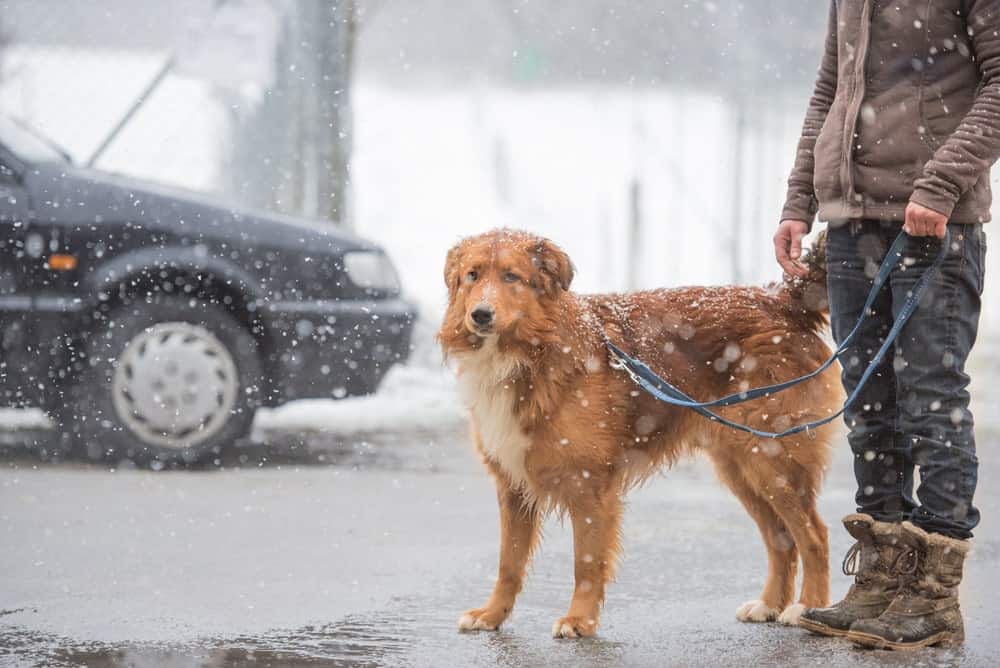
In addition to frostbite, paws are at risk for injury due to sharp ice, road salts, antifreeze, and hazards hidden under the snow. Thoroughly check your dog’s paws each time she comes indoors, looking closely for redness, irritation, or tiny cuts. Be sure to remove any snow or ice that has built up between her toes.
Grooming: Consult your favorite groomer or veterinarian before grooming your dog in the winter. Many dogs’ natural coats are designed to insulate them from the cold, particularly those breeds with double-coats. Closely trimming your dog’s coat could be destroying his natural insulation. Some other breeds, however, are better suited for winter with a hair trim, especially removing excess fur from around paw pads that act as a trap for ice and snow. Dogs with short or course single-coats may need a sweater or jacket to stay warm.
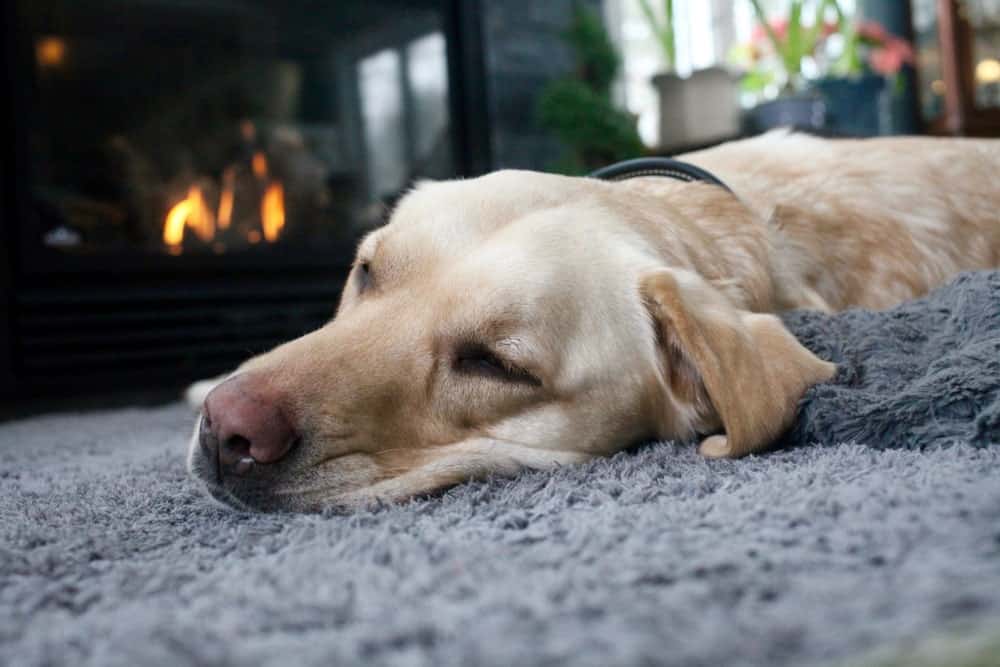
Safety Indoors: In the winter, we use a variety of methods to keep our homes cozy and warm. If you’re using a fireplace, make sure it’s adequately screened to prohibit your pets from getting too close. Keep space heaters, heating pads, and electric blankets out of reach of your pet and never leave them unattended.
With a few winter weather precautions and preparations in place, your dog can have a wonderful winter!
Do you have any other winter weather advice for dog owners? Share it in a comment below.


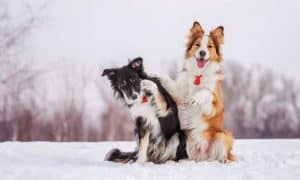








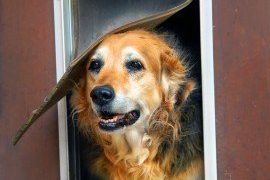



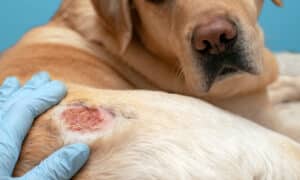





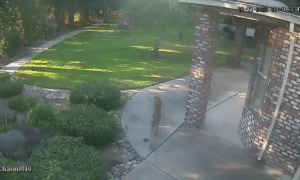


These are great tips! My dogs will not wear a coat or the booties though have tried both many many many times and they just refuse! Sit down and start tearing it all off.